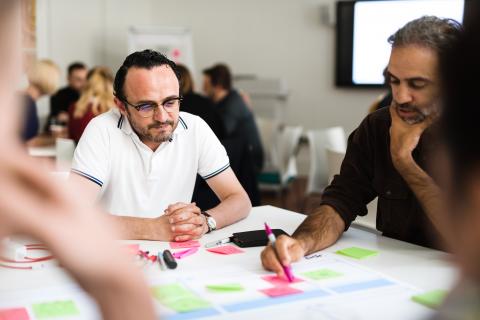University-Industry collaboration in Upper-Silesia
The Policy Learning Platform organised an online peer review on the topic of ‘university-industry collaboration and the commercialisation of research results for the Region of Upper Silesia, Poland, on 2 and 3 March 2022.
Peers from across Europe
Under the moderation of our research and innovation experts Arnault Morisson and Marc Pattinson, five talented peers from Austria, Italy, Spain, and Sweden shared with the host region their experiences and suggestions for promoting the commercialisation of research results. The five peers were:
- Balázs Barta, Pannon Business Network, Hungary
- Daniela Nepote, IRES PIEMONTE, Italy
- Jorge Muyo, Regional Government of Cantabria, Spain
- Juan Carlos Martinez, CEEI-Burgos, Spain
- Pilar Garces, Castilla y León region, Spain
Find the host’s main policy challenges and peers’ suggestions in the follow-up report.
Key learnings
The host region, Upper Silesia with the support from Upper Silesian Agency for Enterprise and Development (GAPR), is currently designing its operational programme and aimed to boost the commercialisation of research results from its strong university-led R&D ecosystem.
The host wanted to receive expertise, gain knowledge, and get inspiration from good practices coming from different European regions dealing with the following policy challenges:
- What are soft policy tools to support the commercialisation of research results?
- What are policies for intermediaries to support the commercialisation of research results?
Building on two days of intense and very rich exchanges with the host region, Silesia Marshall’s Office, GAPR, and stakeholders, the five peers gave concrete and actionable suggestions on the main policy challenges.
For policies for intermediaries to support the commercialisation of research results, the peers highlighted on the importance to:
- To gather each player of a value chain to reveal opportunities, like Upper Silesia smart sports day (prevention, sensor, 3D printing
- To promote cross-sectoral days, like e-sports meet health- and senior care (e.g.: combatting cognitive impairment)
- To target MID-CAPS (more flexible than large companies) as they can be a core target group for TTO services
- To open up to financial actors (national) such as banks, financial investors, venture capital, business angels… They could help with the financing of the commercialisation of research
- To collaborate with innovation foundations (see Castilla y Léon) or regional funds acting as intermediaries and supporting the innovation ecosystem (training, entrepreneurship, mentorship).
- Identify change agents and entrepreneurial faculty.
- Adapt and modernise individual researchers' and professors' evaluation processes/schemes by including/enhancing additional criteria such as commercialised/transferred patents or spin-off/out engagement in order to promote the close-to-market approach rather than exclusively traditional criteria such as the number of papers/publications published.
- A culture of “failure” must be accepted.
For soft policy tools to support the commercialisation of research results, the peers recommended to:
A good approach is to develop a real case to start developing all the actions that are relevant to implement. A pilot test where we can control all different actions from the point of view of the Industry and the University.
Clusters must act as strategic intelligence hubs for the region: support interactions with knowledge institutions, not just universities but also other tertiary education system (i.e. higher technical schools).
Get involved in the creation of educational material and curricula to match your industry needs, and create student placement schemes. Many EU regions have good experiences and Silesia has a good network of thematic clusters – aligned with S3 and Technology Development Programme.
Apply for a peer review
Find solutions to your policy challenges with our experts and peers during a two-day peer review.
